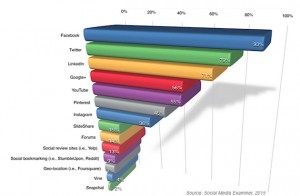
The challenge of motivating employees to perform to their full potential is one that every workplace faces. Managers can feel that their staff would be more productive if they were more committed, while employees typically feel overworked and undervalued. So what are the best methods to increase employee engagement and encourage them to bring their full selves to work every day? Looking specifically at rewards or recognition, which is better? The answer of course is that it depends.
The Employee Engagement Hierarchy is based off of Abraham Maslow’s Hierarchy of Needs and reflects an employee’s engagement level as determined by how well their needs are being met. Rewards and recognition fulfill different needs and so which one is better depends on the individual and their needs.
Rewards
This includes all financial rewards (also known as extrinsic rewards) like pay raises, bonuses, gift cards, or any other tangible reward which is given to a person in recognition of their performance.
Pros:
- Highly motivating if the reward is desirable
- Attractive perks can increase the appeal of an employer to prospective employees, attracting higher calibre candidates
- Could compensate for jobs with lower rates of pay or job satisfaction
Cons:
- Short-term motivation only, leading to ongoing financial costs to produce regular reward opportunities
- Could lead to increased culture of competition, rather than collaboration and teamwork, amongst staff
- Could lead staff to focus only on achieving outcomes associated with rewards, and neglect other areas of performance
Overall, while providing extrinsic tangible rewards is generally seen as a reliable and effective way to encourage and motivate staff performance, as you can see, there are some consequences worth taking into account. While rewards can certainly provide short-term motivation and drive, it generally does not drive long-term engagement, and must be continually invested in to make it succeed. In terms of workplace collaboration, rewarding individuals only runs the risk of discouraging teamwork, as individuals seek to outperform each other, rather than work together to achieve targets. This has the potential to create disharmony in the workplace as staff vie for the reward rather than the focus on quality work.
Recognition
Also known as intrinsic or psychic rewards, recognition involves the psychological rewards gained by doing a job well. This can include verbal or written recognition of an employee’s achievements, skills, or overall performance. Research has found that it is intrinsic rewards and recognition that tend to drive employee motivation on a day-to-day level, rather than the tangible rewards.
Pros:
- No financial investment required
- Increases employees’ sense of competence and worth, resulting in increased pride and care in their work
- Builds meaningfulness and purpose for an employee, contributing to their job satisfaction as they recognise the relevance/importance of their role within the greater organization
- Can be a great way to reinforce organizational values and cultures like improving teamwork
Cons:
- Staff may “slack off” after they have received recognition, thinking they have already proved themselves
- Staff can feel undervalued if they are never recognized
While there are some concerns that recognizing individuals for their performance might lead them to ease back their work effort — while not recognizing others could leave them feeling devalued — these issues can be overcome. For the most part, intrinsic rewards continue to motivate employees afterwards, as they want their employer to feel that the recognition was justified. And recognition is something that can be given to any employee, including those who may not be performing at the highest standard, as it can be used as a tool to engage and motivate employees who feel undervalued or overworked and are therefore less productive.
Rewarding with Recognition
It’s often said that it’s the glass of water that cures a headache, not the medicine that was washed down with it. Could this be the same for rewards and recognition? Is it really the psychological rewards that employees gain from feeling valued and engaged in meaningful work that encourages them each day, rather than the hope of receiving a tangible reward?
Either way, there are compelling gains to be made from creating a workplace culture that celebrates and promotes the achievements of staff through recognition. It requires no financial investment, and provides long-term benefits to employee satisfaction and workplace productivity. Best of all, it’s something that can be started straight away.
Business & Finance Articles on Business 2 Community(132)
Report Post







